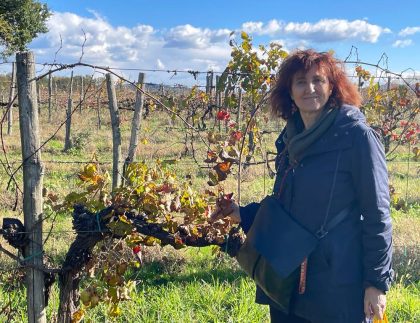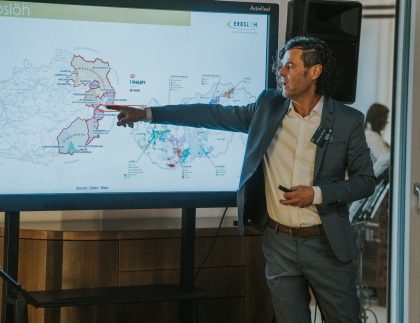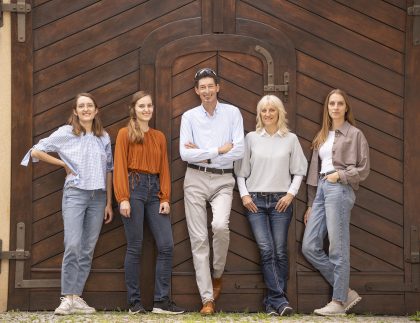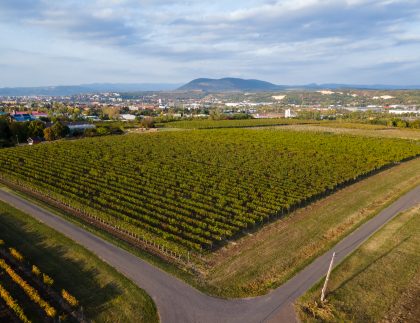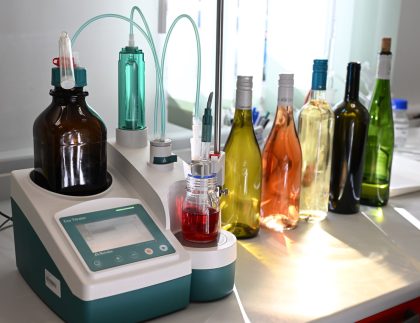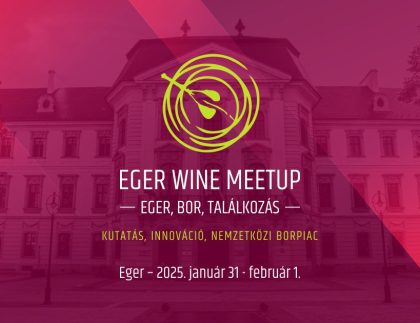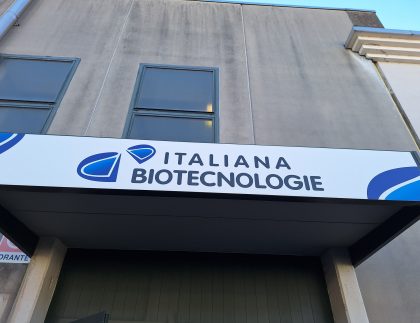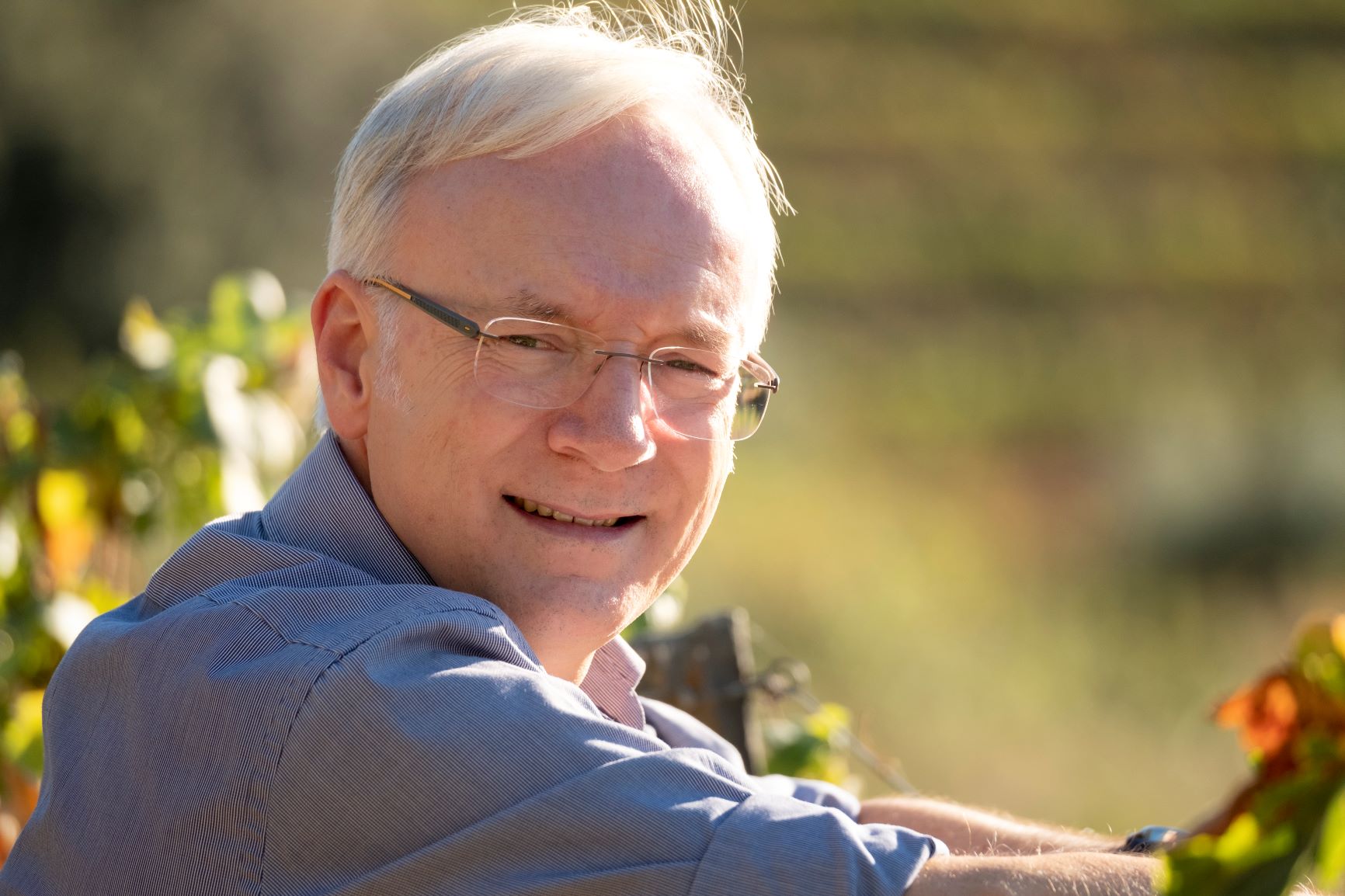
Besides your work as Head of Research and Development at Sogrape Vinhos SA, you serve as Scientific Secretary of the Sustainable Development and Climate Change expert group of the International Organization of Vine and Wine – OIV. Why is sustainability so important for you?
It’s a question of ethics, responsibility, and hope. I believe I have no right to attain any given goal by using up resources and preventing anyone else, after me, to pursue and attain a similar goal. I prefer jobs and organizations that share this belief. By doing so, I align my principles with theirs and obtain personal and professional fulfillment.
Sustainability is also very important for hope. Hope of a better future, a better life, something that all societies and civilizations pursued over history, some failing while others succeeding. Wine is considered to have been an element of human societies for more than 12 000 years, today at a global scale. What could be more sustainable than that?
I take pride in contributing for the sustainability of wine in human history during my lifetime. A legacy I received from the past that I work hard to transport into the future.
You started sustainable practices at Sogrape 20 years ago. How would you describe the change of mindset in the company and the wine sector in connection to sustainability over the past two decades?
I work for a company that, even if large, is family-owned, that is, an organization where there are transgenerational concerns.
Sustainable practices did not start in Sogrape just 20 years ago, they started at the foundation of the company 83 years ago, as the company was not created to end but to last. Twenty years ago, we started certifying those practices by means of independent audits by third parties. This materialized, as early as that, an important change of mindset: we understood that if we could credibly demonstrate our sustainable practices, we could not only increase the reputation and goodwill of the company but also inspire others to follow them and support us in a joint drive for a sustainable business sector.
But, more importantly, it instilled in us the practice of continuous learning and improvement, leading to a virtuous path that is reducing our footprints through transfer of our energy dependence to renewable sources, efficient water use, increase of biodiversity in the natural spaces we farm and by attaining a whopping 98% of reclaimed waste, among many others.
We also promote the qualification of our supply chain by actively investing in transfer of the most recent knowledge and invest annually more than 1 million euros in R&D.
Have you experienced a transformation in consumer opinion on the topic of sustainability?
In my opinion, consumers went from a very confused comprehension of the concept to a clear desire of making sustainable choices.
They, at the very minimum, understand that sustainability is, not just a good thing, but also an important element to secure their future and the future of their families and communities. It is interesting to see in Google that searches on the term spiked since 2016 and particularly accelerated during and after the COVID-19 pandemic.
Regulators are paying attention to this change in the public opinion, and we have several laws being passed across the world to ensure promotion of sustainable practices and disclosure of how sustainable businesses and products are.
In your presentation, you will showcase projects like MED-GOLD, which integrates climate data for climate-smart decisions, and EWSENSOR, which simplifies soil health evaluation. Could you explain how these systems work through one example?
MED-GOLD developed software that allows for sourcing climate data from the European Copernicus data store, process them to obtain historical and future indicators of grapevine development and wine quality and represent those values in a map base that can attain a resolution of one square kilometer. This is a relevant tool as it allows farmers, for example, to decide on varieties and rootstocks to plant so their vineyards thrive under climate change. It also allows them to plan their annual labor and input procurement, protection products or fertilizers, for example, in a more cost-efficient way, avoiding peak demand moments and thus becoming climate smart.
EWSENSOR was a simple, yet brilliant idea to use the sensitivity of earthworms to soil contamination as a biosensor of soil health. These biosensors will be simple, cheap and easy to use by any farmer, providing a reliable indicator of the health status of any soil, just by burying a small box in the soil and checking results a few days later.
The Green Devolution brings nature to consumers through wine tourism and nature-inspired wine brands. Please describe some innovations in this program.
Sogrape is very aware no business can exist in a dead planet! Green Devolution is a term I find very adequate to communicate the movement we participate in to recover nature back to farms and use agroecological practices and ecosystem services for more profitable and resilient farming systems, such as vineyards. Following the approval of the Global Biodiversity Framework by the United Nations in 2022, there is an urgency in recovering biodiversity and making all businesses nature positive.
The wine sector is particularly well placed as a force to promote this movement, as most businesses own land, intervene in landscapes, and obtain products from nature that provide sensations, emotions, and memories in people. Through the offer of wine tourism experiences and by including natural elements and inspirations in crafting and communicating wine brands, at Sogrape we associate nature with flavor and imprint these memories in consumers who will more easily understand the value of conserving the nature originating such great moments in Life.
